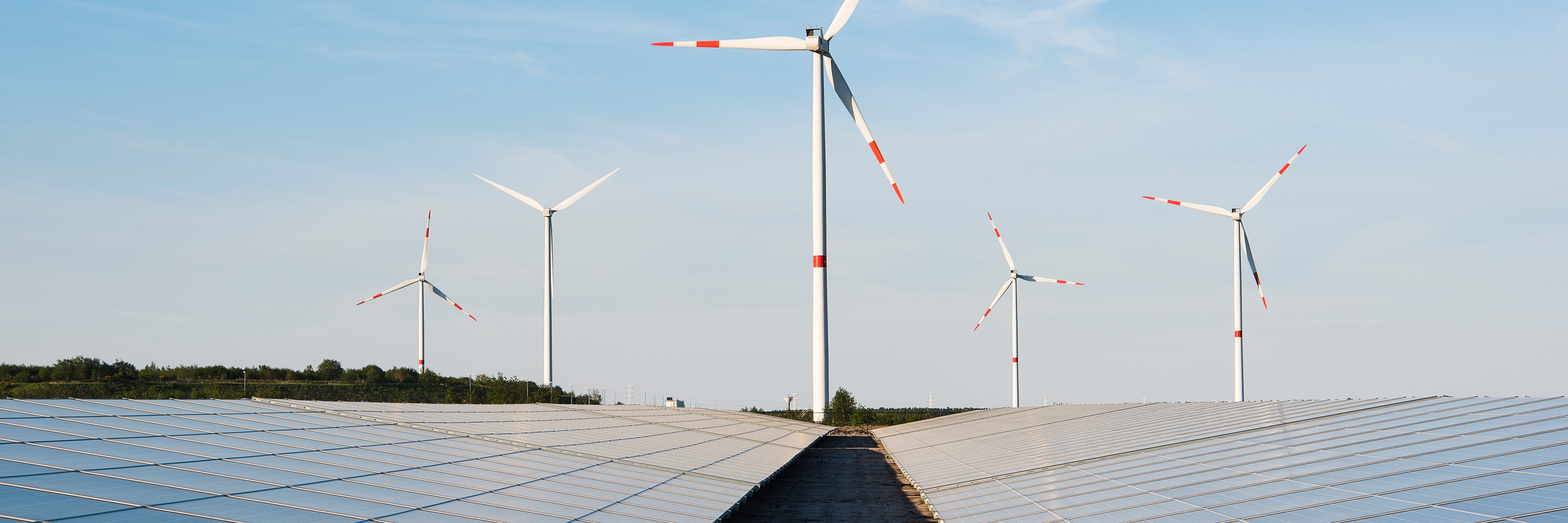
India has emerged as a compelling market for the rapid growth and adoption of renewable energy. According to the Asian Development Bank, the country has increased its renewable energy capacity by 250% over the past seven years and now ranks fourth in the world on this.
The development and deployment of green technologies such as solar and wind, upcoming investments in hydrogen energy, and encouraging the adoption of electric vehicles (EVs) have all played an important role in this transition
India’s stake in green-energy solutions
Over the past few years, the urgency of addressing climate change has given the world the impetus it needs to transition to low- or zero-carbon energy sources. In this latest report, the Intergovernmental Panel on Climate Change (IPCC) emphasized the need to significantly reduce fossil fuel consumption to keep global warming below 1.5°C (it’s currently at 1.1°C).
India, which has significantly exposure to tropical cyclones and extreme weather, experienced such conditions on 314 out of 365 days in 2022, as highlighted by the Delhi-based non-profit Center for Science and Environment (CSE) and Down to Earth (DTE) Data Centre.
While India currently ranks third globally on electricity consumption, it is making commendable progress in its energy transition efforts and the government has set an ambitious target of achieving carbon neutrality by 2070. Notably, the Ministry of New and Renewable Energy reported approximately 62GW in installed solar-power capacity as of November 2022.
Challenges to energy transition
The benefits of green technology and renewable energy are apparent and tangible, but their implementation faces many risks and challenges.
The construction and installation of such projects requires considerations of contractor/engineer experience, supply chain issues, accidents, and force majeure events. Once operational, new challenges arise. As the technology is new, there is no historical data on how performance could actually develop over time.
Additionally, the rapid development of hydrogen-based technologies and the potential transition to them from wind and solar needs to be considered in the long-term upkeep of such infrastructure.
Environmental factors further amplify these risks as solar panels and wind turbines are exposed to the elements and will inevitably incur wear and tear or damage from adverse weather conditions.
Given that the green energy sector is relatively nascent, it is also imperative to build technical knowledge in this field as historical data either does not exist or stems from a technical standard that has become antiquated.
Uncertainty regarding the frequency and severity of extreme weather events pose additional challenges to risk evaluation. Meanwhile, the ever-growing risk of cyber threats continues to loom large, for both green-technology and traditional-energy infrastructure, further necessitating proper risk management and financial protection.
The role of insurance
Green technology and renewable energy projects are capital intensive and typically financed by major banks and institutional investors, who require the assets to be properly insured. This gives insurance a pivotal role in supporting the energy transition.
Insurers supported by reinsurers could effectively undertake risk assessments and underwrite renewable energy projects, providing coverage and financial protection to investors, lenders and project developers. In doing so, they could encourage investment in green energy infrastructure and facilitate the growth of renewable energy capacity.
As long-term renewable energy output remains a risk, reinsurers through insurers could provide performance guarantees, taking on risks such as projects producing less power than anticipated. This approach would stabilise returns for investors, making these projects more attractive for long-term financing.
The same is true of batteries used in electric vehicles. Their long-term performance is crucial for the resale value of these vehicles. Many customers still hesitate to buy an electric vehicle because they are not sure if they will be able to resell it at a reasonable price down the road as there is simply no historical data on how engine performance will be affected. Performance guarantees provided by the insurance sector could eliminate this risk and boost the sales of environmentally friendly cars.
Reinsurers have access to vast amounts of data, and by leveraging their expertise in risk modelling and data analytics, they could accurately assess and quantify the risks and uncertainties associated with renewable energy projects. This knowledge also allows them to offer valuable insights to project developers and investors enabling informed decision-marking and more precise risk assessment.
Moving towards green energy
The demand for green-technology insurance in India is expected to soar, given the country’s pursuit of renewable energy solutions and ambitious carbon-neutrality targets.
As the country embraces green technologies, the insurance sector will serve as a crucial enabler. By assessing risks, providing performance guarantees and leveraging data analytics, (re)insurers could facilitate the growth of renewable energy projects and infrastructure.
Given the complexity of insuring green technology, well-capitalised reinsurers, in partnership with leading insurers, have a critical role to play in mitigating these risks and providing support and protection to these assets and projects.
(Insurers will play a vital role in India’s green-energy transition | Mint (livemint.com))
Our expert

Related Topics
Newsletter
properties.trackTitle
properties.trackSubtitle

.jpg/_jcr_content/renditions/cropped.16_to_9.jpg./cropped.16_to_9.jpg)






